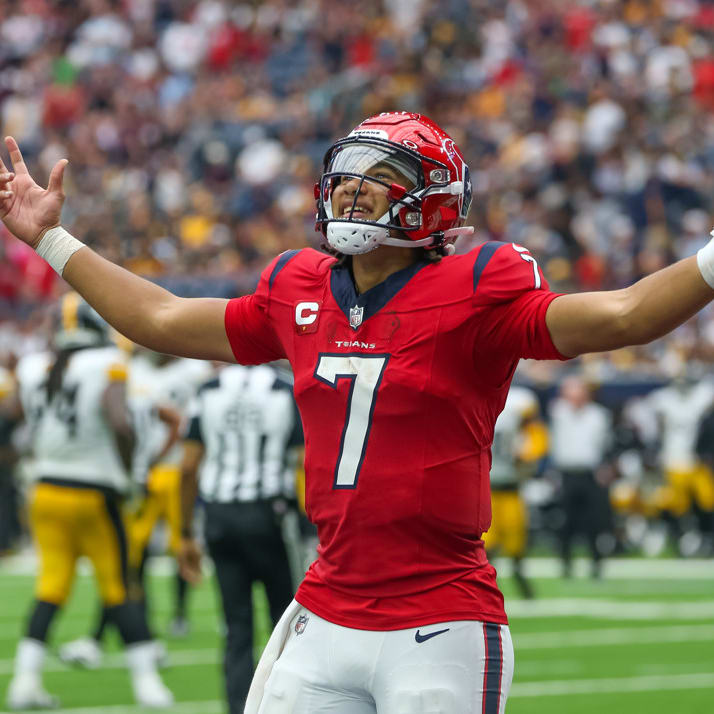This article is part of our Survivor series.
By Chris Liss
Just in case you've never heard of Survivor Pools, here's what they typically entail:
A group of people, sometimes as few as 10 or 20 and sometimes as many as 1,000 or more, put in entry fees of $20 or $50 or whatever amount the pool costs, and all that money goes into a big pot. Then every week, every person who paid in has to pick one NFL team he thinks is going to win that week. There are generally no point spreads involved. Just pick any team you think is going to win. If the team you've chosen does in fact win, you move on to next week. If it loses, you're out.
The following week, those remaining in the pool, i.e., the survivors, try to pick a winner from that week's slate of games, but with one catch: You can't use the same team more than once. So if you picked a big favorite in Week 1 like the Bears or Lions (they host the Colts and Redskins, respectively), you can't use them again in subsequent weeks. So as the season goes on, and you use up more teams, you have fewer from which to choose, it gets harder to pick a winner, and more and more people die off until there is one person left standing. That person gets all the money in the pot. (Actually the way it usually works is when the pool gets down to about two
By Chris Liss
Just in case you've never heard of Survivor Pools, here's what they typically entail:
A group of people, sometimes as few as 10 or 20 and sometimes as many as 1,000 or more, put in entry fees of $20 or $50 or whatever amount the pool costs, and all that money goes into a big pot. Then every week, every person who paid in has to pick one NFL team he thinks is going to win that week. There are generally no point spreads involved. Just pick any team you think is going to win. If the team you've chosen does in fact win, you move on to next week. If it loses, you're out.
The following week, those remaining in the pool, i.e., the survivors, try to pick a winner from that week's slate of games, but with one catch: You can't use the same team more than once. So if you picked a big favorite in Week 1 like the Bears or Lions (they host the Colts and Redskins, respectively), you can't use them again in subsequent weeks. So as the season goes on, and you use up more teams, you have fewer from which to choose, it gets harder to pick a winner, and more and more people die off until there is one person left standing. That person gets all the money in the pot. (Actually the way it usually works is when the pool gets down to about two or three survivors, they elect to split it).
So it's a simple game. Pick a team that wins, and you stay alive. Pick one that loses, and you're done. But belying the simplicity of the game's structure is the complexity of discerning its optimal strategy.
Three Common Strategies:
1. Win Now, Worry about Next Week When It Comes
The most obvious way to play is simply to pick the biggest available favorite on the board (based on the Vegas point spreads and money lines) each week. This is actually the second-best strategy. In this case, you give yourself the best chance to survive the given week, and you worry about the following weeks' matchups when you get there.
2. Look Ahead to Optimize Your Matchups Over the Course of the Year. Pick the Best Available Team This Week That You Don't Need to Save for Later.
The idea here is to pick the best match-up available this week that doesn't compromise your ability to do so in future weeks. The theory is that it's better to choose a 75 percent favorite in Week 1 in order to preserve an 80 percent favorite in Week 2, rather than going 80 percent in Week 1, and getting stuck with a 70 percent proposition in Week 2. Extend this through all 17 weeks (or 12 weeks, or whatever you think it takes to outlast the competition), and you get the point.
The problem with this strategy is that the more you look ahead, the less certain you are of what the situation will be. Key players will get hurt, supposed bad teams will surprise, and supposed good teams will disappoint. Every year, there's a ton of turnover in the NFL - bad teams from the prior season make the playoffs, and good ones fall apart. We have limited knowledge about what will happen even in this week's games, but it's the best we're ever going to do. You might think you're getting a 10-point favorite, and six weeks later, the team you saved is favored by only three.
This strategy occasionally has merit - for instance, if you're looking just one week ahead, but even in that case, saving a team for next week might not be worth it if most of your pool is doing the same thing, for the reasons explained below in the third - and optimal - strategy.
3. Take the Team that Offers the Best Expected Pool Equity Based on Two Variables: (a) Chance of Winning This Week; and (b) How Many of Your Fellow Survivors Will Likely Pick That Team.
This is the optimal strategy. To understand why, let's consider the concept of "pool equity." Take the example of 100 people each putting $10 into a survivor pool before the season. In that case, there's $1,000 in the pot. One's equity before the season starts is the total amount in the pot ($1,000), divided by the number of people in the pool (100). So it's $10.
The idea then, is to pick the team that offers you the most expected equity going into Week 2. Let's say that the Bears - 10-point favorites over the Colts in Week 1 - are given an 80 percent chance to win that game by the Vegas money line. Let's also assume the Saints (over the Redskins) were the second-best pick at 8.5 points and 75 percent, respectively. Which should you pick?
All things beings equal, one would pick the Bears, who have the best chance to advance you to Week 2, but what if you looked at the Yahoo! survivor stats (or the Officefootballpool.com ones), and they showed that 90 percent of the people in pools were on the Bears and only 10 percent were on the Saints? What would that mean for your expected equity? If you assume your pool more or less tracked the Yahoo! stats - and it's reasonable to think so given that hundreds of thousands of people play on those sites, and it's essentially the equivalent of polling data - then we can see that one of four things could happen:
| Outcome 1 | Outcome 2 | Outcome 3 | Outcome 4 | |
| Result | Bears W Saints W | Bears W, Saints L | Bears L, Saints W | Bears L, Saints L |
| Probability | 80%*75%=60% | 80%*25%=20% | 20%*75%=15% | 20%*25%=5% |
| Equity | $10.00 | 1000/90 = $11 | $1000/10 = $100 | $10.00 |
| No. of Survivors | 100 | 90 | 10 | 100 |
| Expected Equity | $6.00 | $2.22 | $15.00 | 0.5 |
There are three scenarios where Bears backers survive (Outcomes 1, 2 and 4), and three where the Saints backers survive (O1, O3 and O4). For Bears backers, they move on if the Bears win, and Saints win (which is expected to happen 60 percent of the time), if the Bears win and Saints lose (which is expected to happen 20 percent of the time), or if both lose (which is expected to happen five percent of the time). We can add up the expected equity in the various scenarios. For the Bears backers it's $6, plus $2.22 plus $0.50 = $8.72. For the Saints backers, it's $6, plus $15, plus $.50 = $21.50.
Why do Saints backers have so much more expected equity? The difference is between Outcome 2 and Outcome 3. When the Bears win, and the Saints lose (which happens 20 percent of the time), Bears backers get through to Week 2, while Saints backers are out. Where does that get the Bears backers? It gets them to a world in which there are 90 people, rather than 100, left in the pool. That's a good thing - their individual chances of winning the pool are 1 in 90 rather than 1 in 100, and hence their share of the $1,000 goes from $10 to $11.
But if the Saints win and the Bears lose (which happens 15 percent of the time), Saints backers get to a world in which there are only 10 people left in the pool. They go from 1 in 100 to 1 in 10, from $10 in equity to $100. It's slightly less likely to happen, but the payout in expected equity should it happen is far better.
The question then is not merely who's most likely to win, but also what's the likely payout once you get through to the next week with a given team. This concept of "pool equity" is similar to the concept of "pot odds" in poker. In that game, you're not simply evaluating the odds that your hand is best, but also how big the pot is if you win. It's the same thing in Survivor - it's not merely which team is most likely to win, but also what the payout is for taking them. And that payout depends on how many people are backing each team.
Of course, it's impossible to know precisely what teams other people will pick, and your pool could differ vastly from the national averages, particularly as the season goes on, and every surviving player has a different set of choices remaining. But for the first 6-8 weeks of the year, the national averages are fairly reliable indicators - just as polling data is usually correct in predicting elections within a small margin of error. Put differently, in a sample of 50,000 survivor players, if 90 percent had the Bears, it's a pretty good indication that the vast majority of your pool would be on the Bears.
This example is merely hypothetical and rarely does one team garner so much of the action. But it illustrates the point that the percentage of people on a team is an important variable when making your survivor pick. By taking it into account, you go from trying to survive each week, to trying to survive while your competitors perish. If you're still alive in Week 10, it doesn't do you a whole lot of good if 70 percent of your pool is standing there with you. But if you're down to the final few players in Week 7, you've got a big percentage of the pool equity and a good chance to win.










